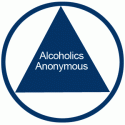Binge Drinking Puts the Brain, and Life Itself, at Risk
Nearly half of students at four-year colleges do it regularly (and, it’s not sex).
Rather, it’s binge drinking — downing five or more alcoholic drinks at a sitting.
“People have a hard time identifying alcohol as a drug,” said Jenny Hwang, associate dean of students and director of the counseling center at Stony Brook University on Long Island, N.Y. In fact, she said, heavy drinking is glamorized as a rite of passage in college years.
But it’s a dangerous rite.
The death toll from alcohol has been rising among U.S. college students. According to the U.S. National Institute on Alcohol Abuse and Alcoholism, alcohol-related deaths have increased in this group from 1,440 in 1998 to 1,825 less than a decade later, in 2005.
Even if the binge drinking doesn’t result in death, Hwang and others emphasize, the risks can be great. In a study published in April, researchers from San Diego reported that young people who binge drink can seriously damage the white matter in their brain, which is crucial for relaying information between brain cells.
Though damage to white matter has long been observed in the brains of adult alcoholics, the researchers expressed surprise at seeing it in young drinkers.
Because of such dangers and the rising death toll, Hwang and other college officials across the United States have taken action, putting into place peer programs and educational outreach to try to stem the tide of drinking-related hazards.
College officials also have begun to reach out to bars near their campuses to enlist their help in the effort. Parents of college students can help as well, experts said, by making sure their college-age offspring are aware of the dangers and don’t become a statistic.
“You want to try to reach students before they get to a state where they are in an emergency, such as an alcoholic overdose,” said Shirley Haberman, director of GatorWell Health Promotion Services at the University of Florida, in Gainesville.
Her department tries to be proactive, she said, getting the word out that binge drinking is risky drinking and letting students know how to help when fellow students might need emergency care. New students, she said, are given a brochure developed by the alcohol industry that encourages responsible drinking.
In the surrounding community, Haberman said, the city council has worked to encourage bars and taverns to be responsible by ensuring, for instance, that patrons are 21 or older.
At Stony Brook, it took a tragedy to inspire an anti-binge-drinking program. The college-age son of a long-time faculty member died of acute alcohol poisoning while attending a university in the Midwest. This past spring, Hwang and others created a peer-training program that teaches students to recognize dangerous symptoms of intoxication and to call 911 when needed.
Students who complete the four-hour program, which also includes CPR training, learn that letting those who are drunk and passed out sleep it off is not the safe or wise thing to do, Hwang said. It’s called the Red Watch Band Program because those who complete it are given a red watch to wear to show they are part of the program.
Among the students who’ve signed up for the program so farm, “many of them are concerned about their friends,” Hwang said. Some have called 911, and others have distracted friends headed to a party where heavy drinking was expected by suggesting alternate activities.
More than 20 other colleges are planning to launch the program, she said.
How can parents help? For starters, don’t share your own war stories of college drinking, Hwang urged. Parents can also discuss the legal problems associated with underage drinking and encourage their offspring to look out for their friends.
Also keep an ear out when visiting colleges, she added.
“When parents shop around for colleges, they really should be able to find out what kind of policies, practices [each has] to address the national problem of alcohol,” Hwang said. And if college officials claim there is not problem? “I would say they are not being fully honest,” she said.
source: Scout News
